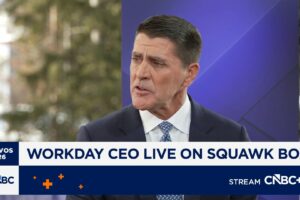
Bloomberg
Bank of England Aligns With the Fed Over Rout in Bond Market
(Bloomberg) — In the showdown between traders and central bankers over rising bond yields, the Bank of England is aligned more with the relaxed views of the U.S. Federal Reserve than peers in Asia and Europe that are trying to rein in markets.Addressing the topic for the first time late last week, BOE policy makers echoed Fed officials in reading a surge in borrowing costs as optimism about a rapid recovery. They brushed aside concerns about a return to the dysfunction in markets that dominated the early days of the coronavirus pandemic.Their remarks suggest that the U.K. central bank has no immediate plans to counter the sell-off that quadrupled yields on 10-year government bonds since the start of the year. While borrowing costs remain historically low, the increase could embolden Chancellor of the Exchequer Rishi Sunak to talk more about how he will repair public finances when he delivers his annual budget on Wednesday.“It will probably reinforce Sunak’s hawkish instincts,” said Jacob Nell, chief U.K. economist at Morgan Stanley and a former Treasury official. “The motivation for getting on a sustainable footing is you’re worried the bond market will push up yields and constrain you.”A rapid effort to vaccinate the population against Covid-19 in the U.S. and U.K. has boosted optimism about a quick rebound. Those expectations fueled a plunge in bond prices around the world, pushing the yield on 10-year U.S. Treasuries to the highest level in a year.What Bloomberg Economics Says…“The rise in bond yields over the past month, if it sticks, would mean debt interest costs as a share of GDP average 1.2% over the five years rather than 1%. Debt servicing costs have averaged 1.7% since 2000.”– Dan Hanson, senior economist. Read his full INSIGHT here.U.K. bonds were among the hardest-hit across developed markets, with yields on tenors of more than 10 years now a half percentage point above where they were a year ago before when the pandemic struck. Money-market traders last week priced-out any further interest-rate cuts after months of speculation that policy makers might push borrowing costs into negative territory.The U.K. credit market has also been pummeled given its sizable share of long-dated debt, which tends to be more sensitive to inflation. Sterling high-grade corporate bonds have fallen 3.4% in total return terms this year. By contrast, shorter-dated euro-denominated notes have lost just 0.5%.Those gains in yields have a consequence both for the strength of the recovery and for Sunak’s Treasury, which is taking on record amounts of debt to protect businesses and consumers from the impact of a third national lockdown.The rise in yields adds about 10 billion pounds ($14 billion) to the government’s debt burden, enough to offset revenue from the potential increase in corporate tax under consideration in the budget, said Robert Wood, chief U.K. economist at Bank of America Merrill Lynch.“This doesn’t make the public finances unsustainable. Does it matter? Yes!” he said.But BOE officials appeared largely unperturbed in a series of appearances last week. David Ramsden, a deputy governor, called the move “a corollary of that more positive news on the economy, driven by more positive vaccination news rather than something about a new worry around inflation.”Andy Haldane, the bank’s chief economist and one of the most hawkish members of its rate-setting committee, suggested that central bankers and financial markets could be underestimating the risk of inflation as the economy reopens.Together, those comments shifted speculation away from further bank stimulus and toward the question of when policy makers might pare back the support they have in place now.“Haldane is coming out with very bullish, very positive, and by implication hawkish views on the economic rebound,” said Liz Martins, senior economist at HSBC Holdings Plc.The BOE’s view contrasts with thinking at the European Central Bank and among others across Asia. The Reserve Bank of Australia made $2 billion of unscheduled purchases, while Korea announced buying plans for the next few months. ECB Executive Board member Isabel Schnabel said more stimulus could be added if the surge in yields hurts growth.At the Fed, several officials argued last week that higher yields come with a solid recovery. St. Louis Fed President James Bullard called it “a good sign.”Read More: Fed Views Rising Yields as Bullish Sign Reflecting 2021 OptimismBritain’s main inflation rate is below 1% now. The BOE’s forecast is for it to reach its 2% target by the first quarter of 2022 and to settle just above thereafter. Martins at HSBC said that a 10-year bond yield close to 1% combined with a strong pound would mean “material tightening in financial conditions.”For more articles like this, please visit us at bloomberg.comSubscribe now to stay ahead with the most trusted business news source.©2021 Bloomberg L.P.











